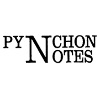Abstract
The Vineland of Pynchon's 1990 novel is not the fertile land of the Norse saga, but a fictional expanse in Northern California where, in 1984, a diverse group of survivors of the 1960s find themselves involved in conspiracies and political innuendo they can neither control nor understand. In Reagan's America, 1960s culture often seems either an irrelevant aberration (as embodied by Zoyd Wheeler) or a movement so utterly coopted by the existing power structure that all oppositional force has been dissipated (as seen through Frenesi Gates). As Molly Hite observes, Vineland "could only have been written looking back from a certain perspective on the sixties" (136). The novel deals with both the presence of the past and the pastness of the past as various characters seek to make sense of 1984 America, each with his or her own perspective on the 1960s. I will focus primarily on the Wheeler family, since family or kinship, as N. Katherine Hayles has persuasively argued, represents the primary opposition to much of the state repression documented in the novel.
How to Cite:
Brooks, N., (1997) “Perplexing Utopia: Modern and Postmodern Alienation in Vineland”, Pynchon Notes , 180-196. doi: https://doi.org/10.16995/pn.172
Downloads:
Download PDF

